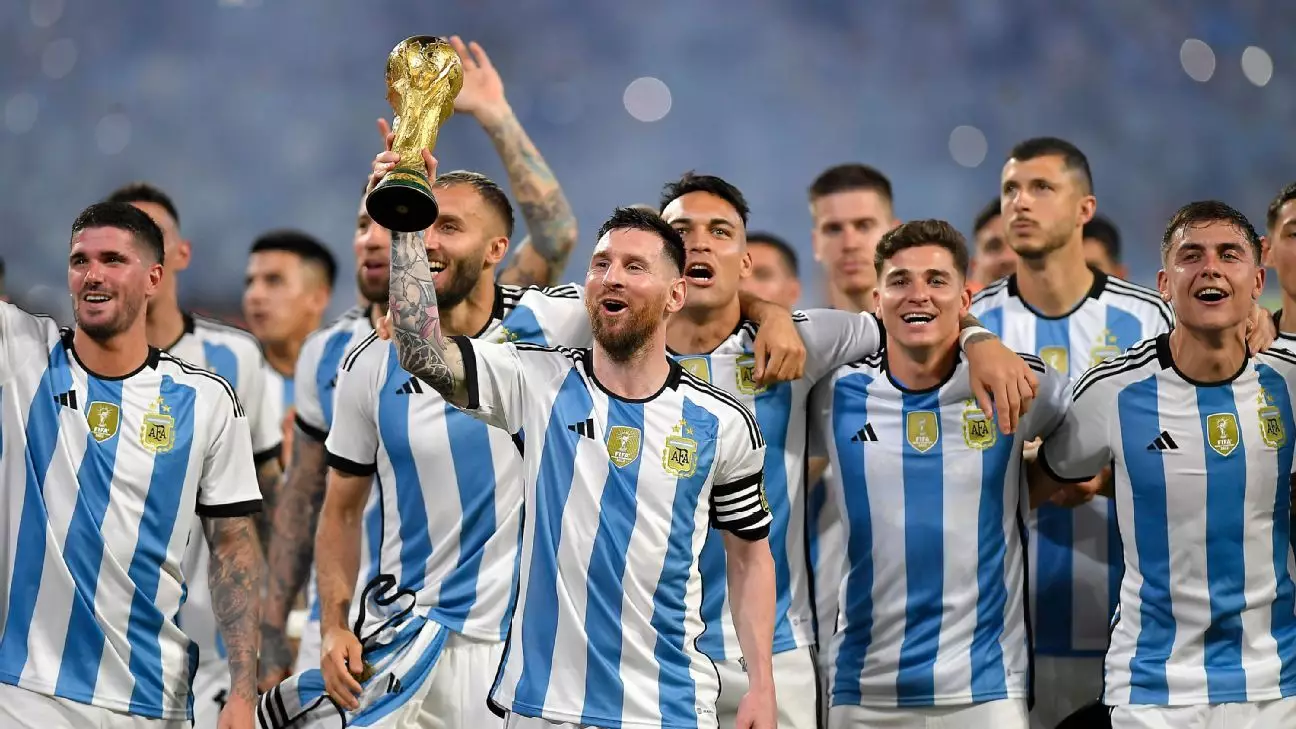In a heart-stirring demonstration of skill and determination, Argentina has successfully claimed its spot in the 2026 World Cup, marking a significant accomplishment as the first South American nation to qualify for this illustrious tournament. After clinching their third World Cup title in Qatar in 2022, the Argentinian national team once again finds itself in the spotlight, gearing up to defend that title on a global stage. This qualification not only reinforces Argentina’s footballing pedigree but also offers an opportunity for the nation to continue building on its rich footballing legacy.
This year, the qualification journey took a dramatic turn, highlighted by crucial results across various matchups in the South American qualifiers. The intensity of the competition reached a boiling point when Bolivia’s inability to secure a win against Uruguay solidified Argentina’s place among the tournament’s elite. Such moments illustrate the unpredictability of football, where a team’s fate can hinge on the performances of rival squads. The framework for this World Cup allows the top six South American teams to automatically qualify, thus Argentina, having consistently been at the helm of the qualifiers with 28 points, highlights its dominance in the region. Games involving powerhouses like Brazil and Uruguay saw Argentina achieving remarkable victories, further bolstering their status as the front-runners.
Messi’s Legacy: What Lies Ahead?
As Argentina prepares to embark on this journey, a cloud of anticipation looms over Lionel Messi’s potential involvement. The legendary footballer, who has cemented his legacy through remarkable feats, including a pivotal role in Argentina’s World Cup victory over France, now faces the reality of father time. At 37, Messi’s future in international football remains uncertain, yet the door has not been entirely closed. His current contract with Inter Miami extends through 2025, providing a glimmer of hope for fans eager to see him grace the World Cup stage one last time.
However, Messi’s physical health comes into question with recent injury concerns, particularly an adductor issue. His absence from the Argentinian squad in this round of qualifiers raises legitimate concerns among supporters. While he hasn’t ruled out the prospect of participating in the upcoming World Cup, he has emphasized that his priority isn’t on that ambition, hinting at the inevitability of his career winding down. This poignant realization underscores the dual nature of sports, wherein the thrill of victory is forever intertwined with the inevitability of transition.
A New Era of Football in 2026
Notably, the 2026 World Cup will unveil innovations in the tournament format, transitioning to a 48-team competition. This expanded format enhances global representation in the sport, allowing nations like Japan, New Zealand, and Iran to join the fray alongside the host countries of the US, Canada, and Mexico. Such changes represent a significant evolution of football, marrying historical footballing prowess with the burgeoning enthusiasm from nations previously overlooked on this grand stage.
Argentina’s role in this new era is pivotal. Not only is the nation tasked with defending its title, but it must also navigate the pressures of being a legacy-holding nation in an evolving global landscape of football. As they prepare for what promises to be a thrilling World Cup experience, the focus will remain on how Argentina can channel its historical strengths while fostering new talents, ensuring its footballing flame continues to burn brightly against the backdrop of an evolving football world.


Leave a Reply